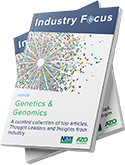Effects of SARS-CoV-2-associated stress among pregnant women on development of fetus brain

In a recent study posted to the medRxiv* preprint server, researchers in the United States evaluated the effects of maternal coronavirus disease 2019 (COVID-19) pandemic-associated stress and fetal brain development using magnetic resonance imaging (MRI).
Studies have reported perinatal care disruptions due to the severe acute respiratory syndrome coronavirus 2 (SARS-CoV-2) pandemic as unprecedented and significant stressors among child-bearing females. Multiple neuro-structural alterations have been documented among mid-pandemic fetuses compared to pre-pandemic fetuses. The association between COVID-19-associated maternal stress (MS) and fetal brain changes has not been examined.

About the study
The present study investigated fetal brain developmental changes associated with maternal COVID-19-associated stress using MRI.
Women residing in LA (Los Angeles) with healthy pregnancies at 21 to 38 gestational weeks (GW) were recruited for the prospective study using social media advertisements, referral notes from community CHLA (Children’s Hospital LA) clinics, and flyers between November 2020 and November 2021. In addition, the women completed several self-documentation assessments concerning their experiences of COVID-19-associated disruptions, coping behaviors, and perceived levels of stress, and their fetal MRI images were obtained.
The perceived stress levels of the mothers were linked to the quantitative multimodal MRI reports of the development of their fetal brains by multivariate modeling. All pregnant women of 18 years to 45 years of age with ultrasonography (USG)-confirmed uncomplicated and singleton pregnancies were analyzed. Expecting women with several gestations, genetic or fetal anomalies, congenital infections, and maternal contraindications to MRI were excluded from the analysis.
Perinatal data and demographical and self-reported survey data of the study participants were obtained from online surveys within a day before MRI imaging. The mothers filled out the coronavirus perinatal experiences-impact survey (COPE-IS) questionnaire based on questionnaires including the brief symptom inventory post-traumatic stress disorder (PTSD) checklist and the diagnostic and statistical manual of mental disorders, fifth edition (DSM-5) to provide data on their experiences and feelings related to COVID-19-associated disruptions.
In addition, the participants filled out the brief COPE (coping orientation to problems exposed) questionnaire to determine coping behaviors. The SEE (socioeconomic environment) of the neighborhood can modify MS amid pregnancy, COVID-19-associated stress, and birth outcomes and was represented in the study using the childhood opportunity index (COI) scores. Maternal COI scores were extracted using self-documented postal codes during MRI imaging visits (COI-SEE).
Genetics & Genomics eBook

Multiplanar one-shot spin-echo images and echo-planar images (EPI) were obtained from the MRI scans. Image segmentation was performed, and the final segmented images showed volumes of several structures, including the cortical plates, white matter, cerebrospinal fluid (CSF) within the ventricles, extra-axial CSF, cerebellum, deeply situated gray-colored tissues, brainstem, and the hippocampal-amygdala complex. TBV (total brain volume) values were obtained by summing up volumes of structures depicted on the images, and linear regression modeling was performed.
Results
In total, 45 maternal-fetal pairs completed the MRI sessions. However, three were excluded due to missing postal code data, and another three were excluded since segmented images of their brain could not be obtained. As a result, the images of 39 participants were considered for modeling structural changes, and those of 43 participants were considered for modeling functional changes in the fetal brains.
Fetal brainstem volumes increased with an elevation in maternal COVID-19-associated stress, indicative of accelerated maturation of the brainstem. On the contrary, greater COVID-19-associated stress was found to correlate with a lowered temporal functional variance of the fetal brain, indicative of reduced functional connectivity.
No statistically significant differences were found between the fetal cranial structures’ volumes in absolute terms and the perceived levels of COI-SEE, MS, and the interactions between them. However, a significant and positive correlation was observed between the normalized brainstem volume and the perceived levels of MS but not between the COI-SEE levels and the MS and COI-SEE interactions.
No statistically significant associations were observed between the normalized volume data of other fetal brain structures and COI-SEE or COPE stress. However, a statistically significant inverse association between COPE stress and temporal variability was observed. Among coping behaviors, venting and humor were the most commonly used behaviors by less stressed participants than those who reported high stress levels.
Among SARS-CoV-2 infection-specific coping behaviors, access to mental health providers and data on stress reduction techniques were reported as very important by less stressed women in high amounts compared to highly stressed women.
Overall, the study findings showed that the levels of perceived MS in the context of COVID-19-associated disruptions impact functional and structural fetal brain development.
*Important notice
medRxiv publishes preliminary scientific reports that are not peer-reviewed and, therefore, should not be regarded as conclusive, guide clinical practice/health-related behavior, or treated as established information.
- Impact of COVID-19 related maternal stress on fetal brain development: A Multimodal MRI study. Vidya Rajagopalan et al. medRxiv preprint 2022, DOI: https://doi.org/10.1101/2022.10.26.22281575, https://www.medrxiv.org/content/10.1101/2022.10.26.22281575v1
Posted in: Child Health News | Medical Research News | Women's Health News | Disease/Infection News
Tags: Amygdala, Brain, Children, Coronavirus, Coronavirus Disease COVID-19, covid-19, Diagnostic, Genetic, Hospital, Imaging, Magnetic Resonance Imaging, Mental Health, Pandemic, Post-Traumatic Stress Disorder, Pregnancy, Respiratory, SARS, SARS-CoV-2, Severe Acute Respiratory, Severe Acute Respiratory Syndrome, Stress, Syndrome

Written by
Pooja Toshniwal Paharia
Dr. based clinical-radiological diagnosis and management of oral lesions and conditions and associated maxillofacial disorders.
Source: Read Full Article